Iran election: Hassan Rouhani gets big mandate but will he deliver?
- Published
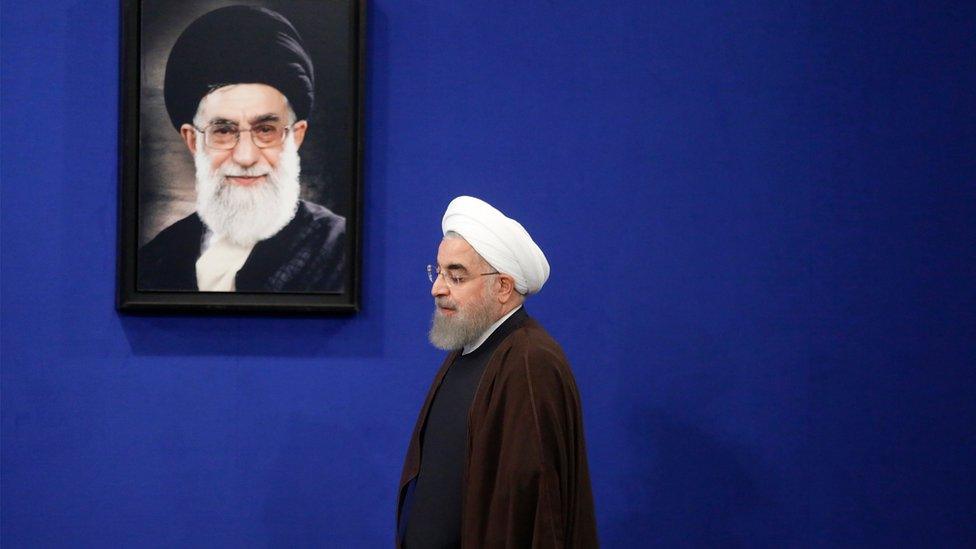
Mr Rouhani has promised to push through reforms but hardliners may obstruct his plans
From the outset when the counting of the votes started after midnight in Iran, the early results indicated that President Hassan Rouhani was heading for a landslide.
Even in small rural towns many people preferred the vision that he had put forward, a vision in sharp contrast to the inward looking, traditional and hardline Islamic government promised by his main challenger, Ebrahim Raissi.
President Rouhani won 23.5 million votes, or 57%. Turnout was unprecedented - nearly 41 million people voted, or 73.5% of the eligible voters. In Tehran, more than five million people came out to vote, twice the number of 2013.
One reason for this high turnout was the reports that the hardliners had pulled out all the stops and mobilised their resources to bring out as many of their supporters as possible to vote, a major push to oust President Rouhani. These reports spurred his supporters and all those who favoured moderation or opposed the hardliners to come out in big numbers.
President Rouhani's victory means a major defeat for the hardliners. The vote may indicate that they will never be able to take control of the executive branch through the ballot box, as a big majority of Iranians do not favour them or their vision.
In his first televised message after the victory, President Rouhani praised Iranians who, in his words, had said No to returning to the past. He was echoing his election campaign motto "We will not go back," a reference to his hard-line opponents and their "backward" policies.
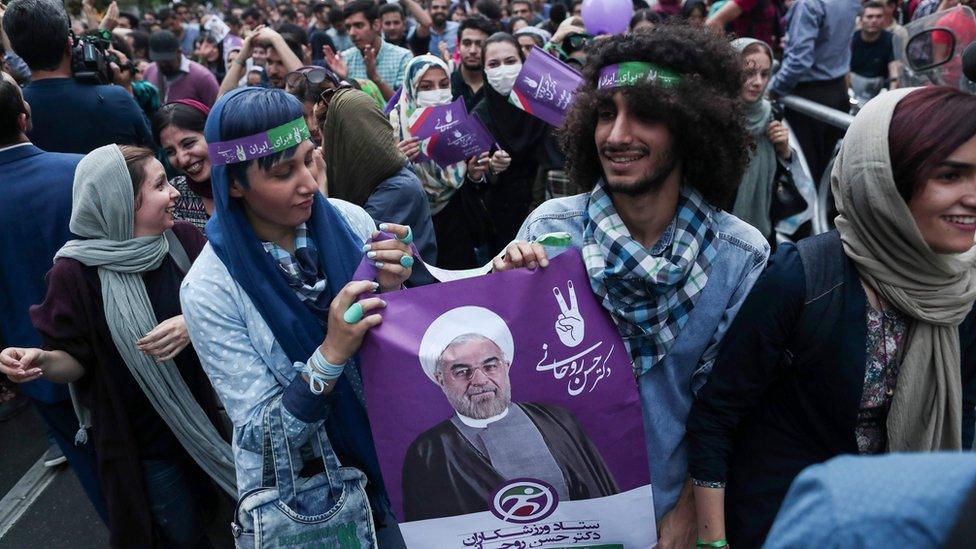
Supporters of President Rouhani celebrated in downtown Tehran
Friday's vote in Iran was the revenge of the moderates. A rejection of those who had intimidated them, jailed them, executed them, drove them to exile, pushed them out of their jobs.
In his campaign, President Rouhani promised to put an end to extremism, to open up the political atmosphere, to extend individual and political rights, to free political prisoners, to remove discrimination against women and bring under control all those state institutions that are not accountable.
To keep and act on these promises, he told his supporters he needed a big mandate, bigger than before.
He firmly placed himself in the camp of the reformists. Now, with his re-election, Iran is on the path towards change, with a renewed confidence drawn from the emphatic result.
Building bridges abroad
To his supporters on Saturday, he said he would remain committed to his promises. It is a tall order. The hardliners are not done yet. They will fight tooth and tail at every turn over the next four years to stop or frustrate President Rouhani's efforts to push through his reforms.
Iran's hardliner Supreme Leader Ayatollah Ali Khamenei has congratulated the Iranians for their big show in the exercise for democracy. But he did not congratulate President Rouhani. There are many Rouhani supporters who are willing to argue that the supreme leader had interfered in the elections by constantly criticising the president in the run-up to the elections.
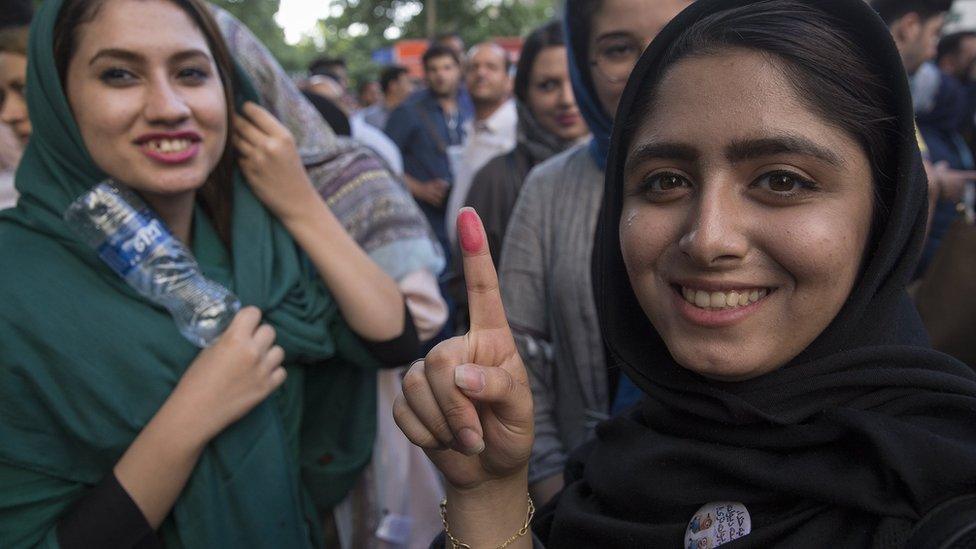
Turnout in the election was surprisingly high
Mr Rouhani has promised to build bridges with the outside world. His election is a huge endorsement for a nuclear deal that his government reached with world powers, which led to the lifting of the crippling sanctions against Iran and saved the country from the threat of a war.
But the deal has serious opponents in the US, where President Donald Trump and the Congress are reviewing their options. Iranians want the nuclear deal to survive, and the signs are that President Rouhani and Iran will keep to their side of the bargain.
In big and small cities around the country, millions of Iranians are celebrating the results. There are videos of people dancing in the streets on social media.
It is a big day in Iran's torturous political development.
- Published20 May 2017
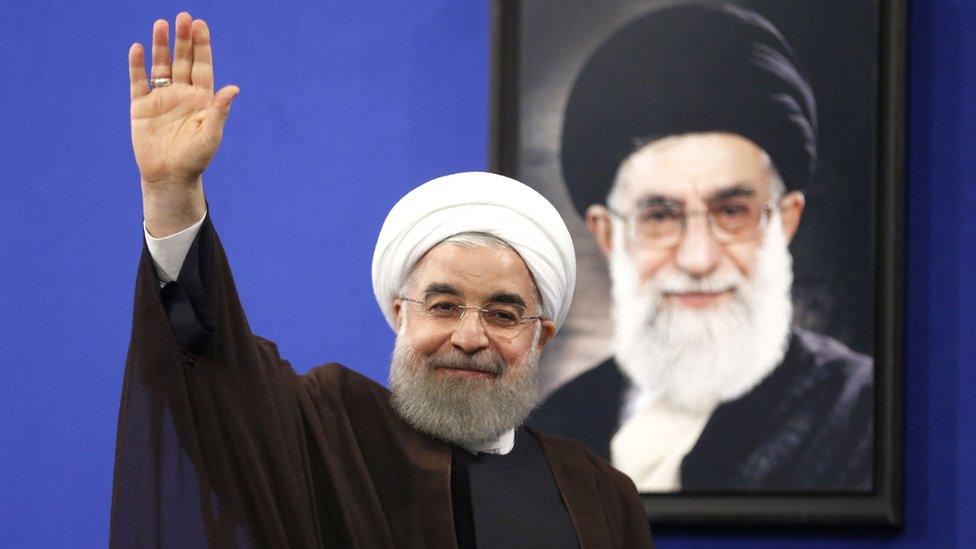
- Published20 May 2017
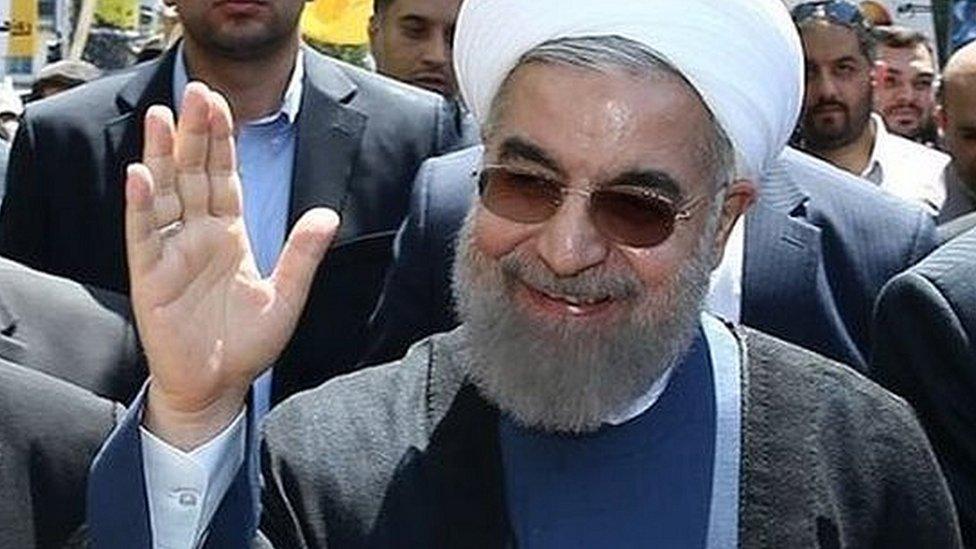
- Published20 May 2017
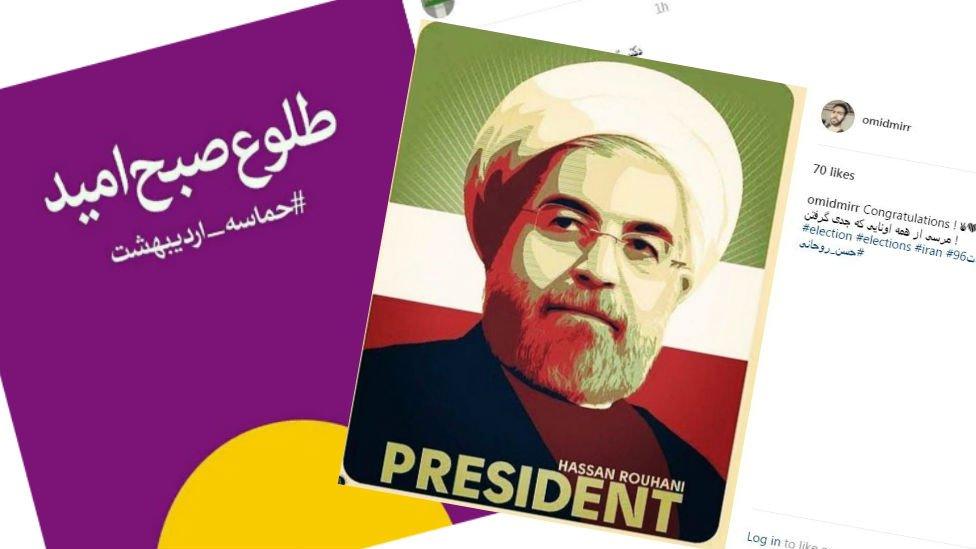
- Published20 May 2017